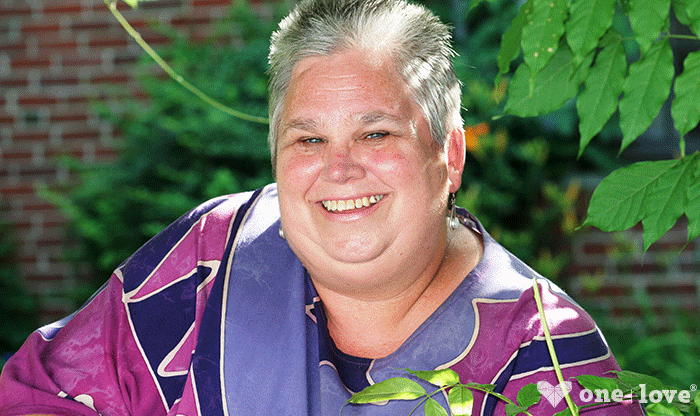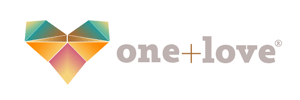
Dr. Loraine Hutchins, Bi Trailblazer
The fight for bisexual visibility in the U.S. must invariably include Dr. Loraine Hutchins’ name in blazing lights. Trailblazer that she is, she co-edited the groundbreaking anthology, Bi Any Other Name: Bi People Speak Out. More recently she co-edited Sexuality, Religion and the Sacred: Bisexual, Pansexual and Polysexual Perspectives (with H. Sharif Williams). Hutchins helped kick off a local and national fellowship of bisexual and bi-friendly people that became BiNet USA, the national bisexual network. Last fall she joined an invitation-only group of bisexual activists at the White House to address bi issues with high-level government officials. Hutchins truly helps set the “B” in “LGBTQ” a-Blaze.
Where do you see bisexual activism headed?
Bisexual activism is headed in many directions at once. There are three national organizations that have worked together to create a Bisexual Leadership Roundtable which has helped to strengthen our participation in national level events. There are also regional annual conferences like BECAUSE (the Midwest) and Transcending Boundaries (New England) which regularly focus [on] support and resources for folks. The latter is also a specifically trans-inclusive and trans-focused conference and BECAUSE has always been trans-inclusive as well.
The three national organizations are (1) BiNet USA which operates a listserve and Facebook page that serve as a good place for individuals looking for support; 2) The Bisexual Resource Center, in Boston; and 3) The American Institute on Bisexuality, in southern California. The Bi Resource Center publishes various publications on bi issues and the Institute sponsors research on various aspects of bisexuality.
These organizations, via the Roundtable, have worked together to heighten bisexuals’ participation in the Obama administration’s annual June Pride events, as well as the September 23 White House Roundtable on Bisexuality which involved government officials meeting with bi activists on issues of concern to the bi community.
Locally where I live (in the DC Metro area), we organized an event honoring bi elders and drawing attention to the needs of bisexual people as they age and the needs of bisexuals of every age. It was highly successful and well-attended, with enthusiastic participation. We held it at a retirement community with featured speakers in their 60s and 70s. Vincent Gray, the mayor of Washington, DC, issued an official proclamation in honor of Celebrate Bisexuality Day.
A lot of bisexual activism is also DIY – happening via blogs and flash mobs and various efforts mobilized via social media. Shiri Eisner’s book is a good example of that. It started as a series of blogs, from Israel, where she lives, and is now a book released by a U.S. publisher, Seal Press. Shiri keeps tabs on U.S. and UK/European, etc. bi movements and her incisive reflections on the state of sexual and gender identities are quite timely for us all here and in other countries. Her ideas, and others like hers, have been able to spread easily via social media.
Bottom line, the bi movement has a long way to go in that we are still fighting erasure and exclusion. You wouldn’t know we are the most populous of the LGB cohort, would you, but that is what current research shows. It’s even a higher percentage of B’s in the younger and more of color sub-sets. Yet most of the media attention and fundraising support still goes to the G’s, and the L’s. Doesn’t make any sense, does it? Well, but it does, because of how invisible we still are. And trivialized, when we are recognized.
What does radical inclusion for bisexuals taste like in the alphabet soup? What are some ways monosexism should and can be challenged?
Inclusion is all about speaking up and speaking out, as much as we can, as often as we can. Today I’m feeling discouraged and overwhelmed, which happens to me sometimes, so I’ll wait for others to chime in on how specifically we do that. I’ve been doing it for years, and, alas, expect to be doing it for the rest of my life so I’m pacing myself for the long haul.
One way I personally challenge monosexism is in my teaching, every day. I teach at a community college in the DC area and my classes are all about interdisciplinary sexuality topics so I am always presented with opportunities – whether in women’s health, sex ed, women’s studies or LGBT studies to teach students about letting go of their either/or, gay/straight assumptions.
Same thing on the gender spectrum, too. I regularly show a short film about intersex babies, aimed at educating parents and medical professionals. One in at least several thousand babies born each year are born with ambiguous genitalia, born intersex, somewhere between “male” and “female” and yet we “fix” these children, usually in a rush, at birth, and they are classified quickly as M or F so that the lie that everyone is distinctly M or F continues.
Same with the huge middle spectrum of behaviors and desires between completely gay and completely straight. Having a day, September 23, to celebrate bisexuality is good but we need to raise awareness every day of the year.
Can you speak to LGBTQ intergenerational magic? Anti-ageism potions and motions?
As for intergenerational magic, it’s certainly true it was there for us, surrounding us, invigorating us at that event we had at the retirement community in DC. There were more 20-something people in that room than there have been before probably, except when the residents’ grandchildren come to visit. It was beautiful to have college students, mid-level career folk, and retired folk, all talking together about bisexual issues and needs.
I don’t have any anti-ageism potions. I feel–like I do about living with disabilities–that age discrimination in this culture is huge and poisonous. The more we name it and confront it, the better.
Is there anything you wish I had asked about?
Just keep asking the hard questions and the good questions. What I am most concerned about is why our allies–heterosexual, gay and lesbian–don’t speak up for bi concerns more in their everyday lives and work?! It is appalling, insulting and hurtful to me to have to constantly realize and face the fact that how I love and who I love (when I am fortunate enough to) is dismissed and invalidated by much of the world, still–including by my own co-workers, family and friends, who should know better.
Check out Loraine Hutchins’ website, including her writing about domestic violence and bisexuals.

Recent Comments